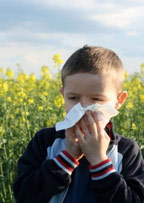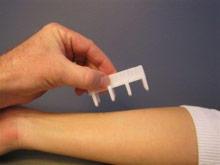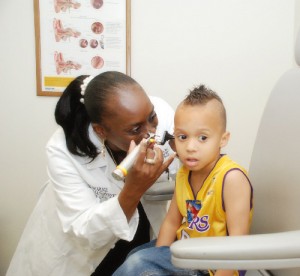- New Sublingual Allergy Tablets - October 31, 2014
- Ground-breaking New Treatment Option for Sleep Apnea - September 27, 2014
- Allergies versus Viruses in Children - September 27, 2014
- “Dog Dust” Protects Children from Allergies - September 27, 2014
- Nasal Saline Irrigation - August 8, 2014
- Doctor, I am Allergic to Dust. What Can I do? - July 31, 2014
- Infants Exposed to Dust Mites Less Likely to Develop Allergies - June 23, 2014
- How to Treat a Young Child’s Cough - December 17, 2013
- Many Parents are Unaware That Their Children Are at Risk for Noise Induced Hearing Loss - December 9, 2013
- Is it a Cold or an Ear Infection? - December 9, 2013

Summer is finally here. For many this spells days at the beach and vacations. For others, all they want from summer is the possibility of relief from their allergy symptoms. Unfortunately, as any allergy sufferer will tell you, allergy season is a lot like baseball season. While it’s thought to be a springtime event, it tends to continue on through summer and even into the fall.
In Southern California, allergy season starts in the spring, when the trees bloom. As the spring passes, grass pollen predominates in late spring and eary summer. The weeds begin in July and peak in August and September, continuing through early fall. In addition to the local pollen triggers, the Santa Ana winds bring in pollen, dust and air pollution from hundreds of miles away. Recent studies have shown that climate change is also contributing to longer and more intense polen seasons.
Although there is no escaping this long (and longer) allergy season, there are things you can do to lessen your symptoms. Minimizing your contact with the allergens that trigger your reaction is a first step.
 How do I avoid exposing myself to allergens?
How do I avoid exposing myself to allergens?
- Avoid spending long periods of time outside when the pollen counts are highest.
- Close house and car windows
- Shower after exposure to allergens
- Use an air purifiers
- Irrigate the nasal passages with saline
What medications can help control allergies?
Many types of medications both over the counter and prescription are available to help control allergy symptoms.
- Antihistamines
- Decongestants
- Nasal Steroids
How do I know if I have allergies?
Most allergy sufferers have similar complaints, indicating they have allergies. These include:
- Itchy/watery eyes
- Runny nose (clear)
- Itchy nose
- Sinus pressure/headaches
- Postnasal drip
- Hoarseness
- Itchy throat

Allergy testing can help identify the specific allergens responsible for a patient’s symptoms (i.e., dust, cat hair, specific trees). Treatment options can be geared specifically towards a patient’s individual allergies through immune therapy. This is done by introducing small amounts of the allergen to the body over time, through allergy shots or sublingual drops. Over time, the body stops reacting to the allergen.
If you have concerns about your allergies or treatment options, folow up with your doctor to discuss a systematic approach to allergy management.
For more information about allergies and treatment options, visit: http://www.ohni.org



